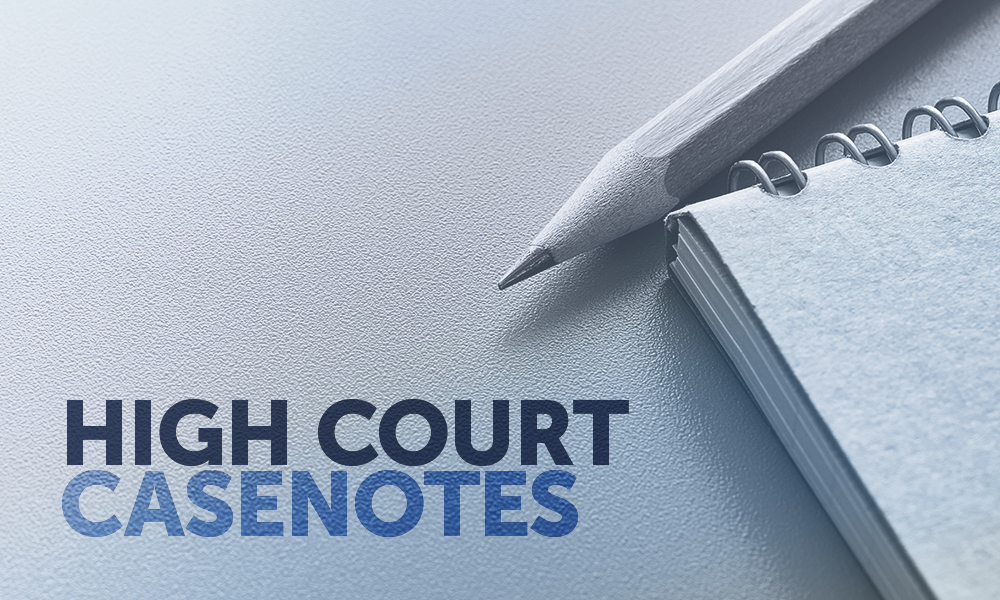In Hornsby Shire Council v Commonwealth of Australia [2023] HCA 19 (14 June 2023), the court was required to consider whether the scheme for the payment of ‘notional GST’ by a local government body in New South Wales, involved the imposition of a tax on property belonging to a state, contrary to s114 of the Constitution.
The plaintiff (Council) sold a car at auction. The proceeds of the sale of the car, less auction costs, amounted to $34,601.80. The auctioneers issued a tax invoice to the Council for this sum, which described the proceeds of the sale to include the sum of $3181.82 as goods and sales tax (GST) – described in the proceeding and judgment as notional GST.
The Council lodged an amended business activity statement (BAS) which included the notional GST in the field “GST on sales”. The BAS resulted in a liability to pay GST which reflected the inclusion of the notional GST.
The Council paid the GST under protest and subsequently issued proceedings in the original jurisdiction of the High Court against NSW and the Commonwealth. The parties prepared a special case that posed several questions for consideration by the court.
Ultimately, the principal issue to be determined by the court was whether the scheme for the payment of notional GST by the Council was a tax and, as such, contrary to s114 of the Constitution, or a voluntary act.
The Council argued that it was effectively compelled to pay notional GST by reason of ss15(aa) and 15(c) of the Local Government (Financial Assistance) Act 1995 (Cth) (the Act). These sections impose certain conditions on grants of local government assistance.
Section 15(aa) of the Act makes it a condition that states withhold amounts of notional GST payments that “should have, but have not been paid by local governing bodies”, and pay it to the Commonwealth.
Section 15(c) of the Act relevantly makes it a condition that, if the federal Minister tells the state the Minister is satisfied it has failed to pay the notional GST, the state will repay. That is, it will repay to the Commonwealth any amount determined by the Minister that is not more than the amount the state has failed to pay.
The High Court unanimously found the payment of notional GST was voluntary. In a joint judgment the High Court noted, at [6]-[10], that the Commonwealth, states and territories (in 1999 and 2009) entered into a political arrangement in which the Commonwealth agreed to enact legislation to provide all revenue from GST to the states and territories.
Further, the states and territories (and their local governments, statutory corporations and authorities) agreed to operate as if they were subject to GST legislation, and make notional payments of GST accordingly.
At [11]-[19], the High Court observed that the Commonwealth and NSW enacted legislation to give effect to these agreements, which included the Act. The court, at [32], stated that the conditions imposed on grants, under the Act, were unlike a tax; that is, because they were only enlivened when the state agreed to accept the financial assistance, and it was always open to the state to refuse.
The court was unconvinced by the Council’s argument that the Council was practically compelled to pay the notional GST, because there would be “detrimental consequences” if it did not receive the “full grant to which it would otherwise be entitled”.
The court noted, at [39], that the Council held no such entitlement. The court was equally dismissive of Council’s argument that the Act, together with other legislation, constituted a “circuitous device” by which s114 of the Constitution was impermissibly circumvented. The court declared, at [43], that no such device existed.
Dr Michelle Sharpe is a Victorian barrister practising in general commercial, real property, disciplinary and regulatory law, 03 9225 8722, email msharpe@vicbar.com.au. The full version of these judgments can be found at austlii.edu.au.













Share this article